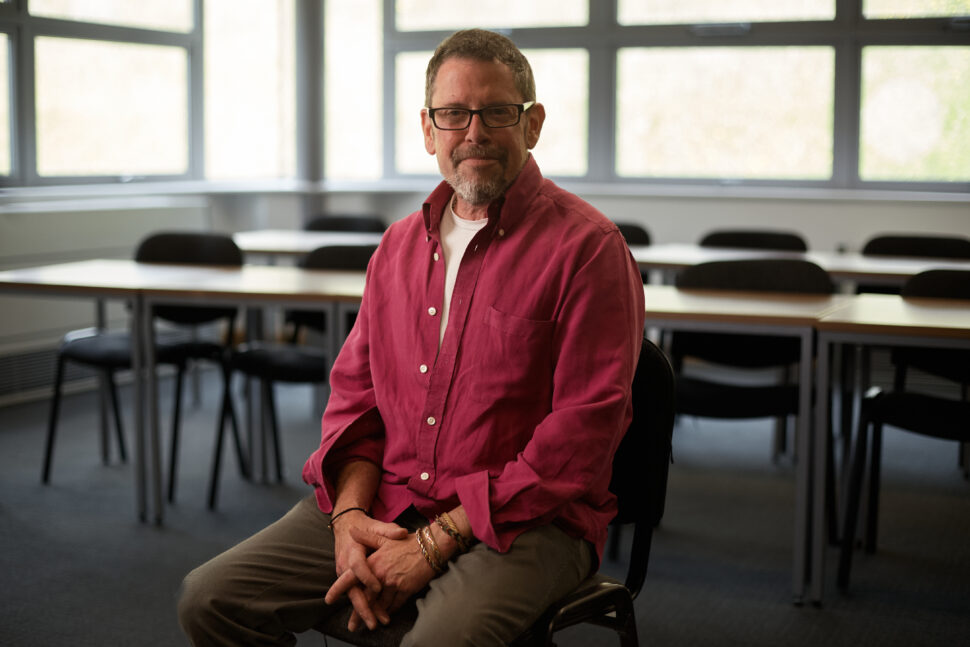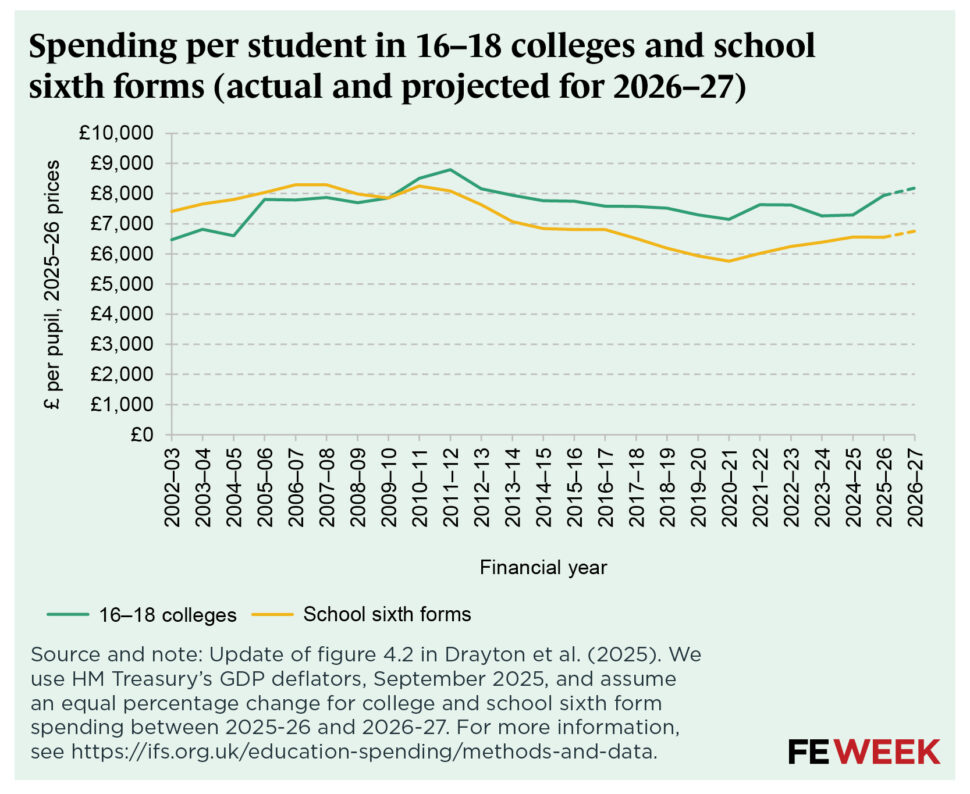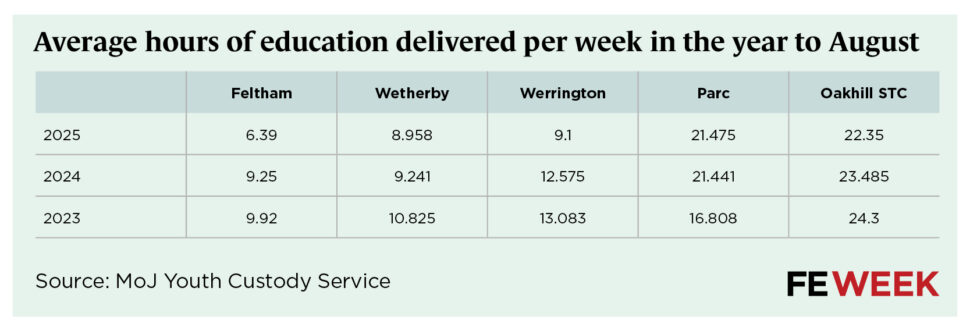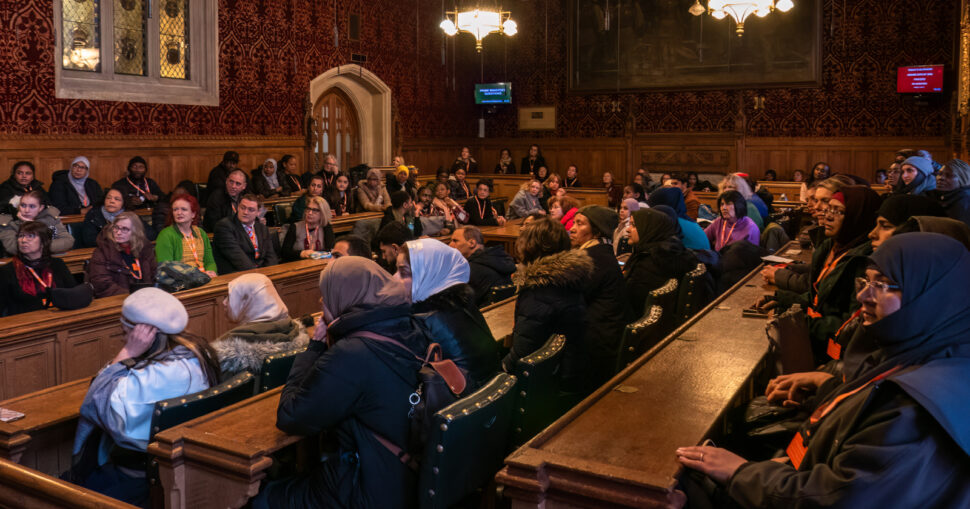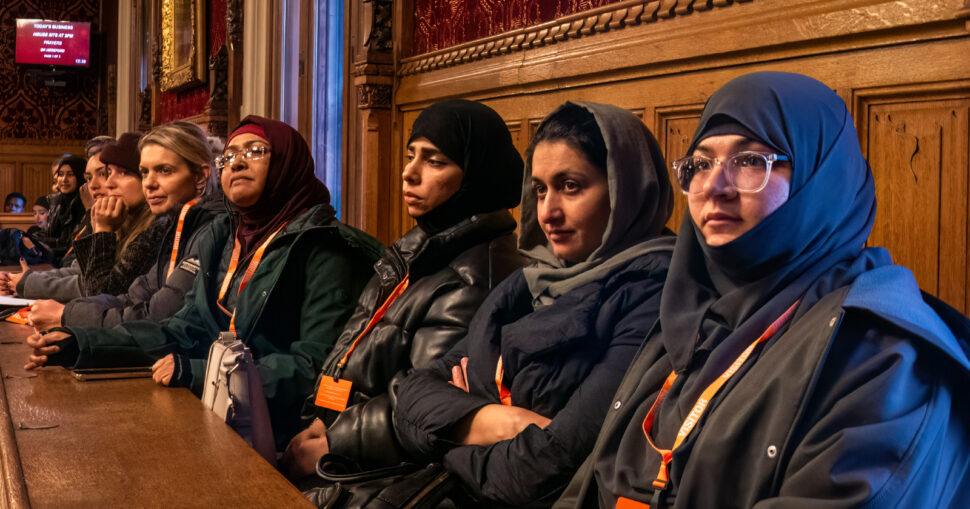Ministers are facing a “tsunami” of employer backlash against their apprenticeship assessment reforms that are being “bulldozed” through despite widespread safety fears.
FE Week understands that businesses in the adult care, food and drink, and engineering and manufacturing industries are preparing letters to Skills England to oppose a “dumbed down” approach to apprentice assessment.
It follows last month’s explosive intervention from construction chiefs who wrote to prime minister Sir Keir Starmer to warn plans to slash independent assessment risk allowing unqualified apprentices to pass.
One manufacturer has already halted apprentice recruitment, and there are fears other employers will withdraw entirely unless ministers change course.
The reforms are being pushed through without proper consultation and for the sake of “speed and cost” savings, employers warn. They describe the process as “not employer-led in any way” and claim businesses are being “hoodwinked”.
Firms are also worried that apprenticeships will be watered down to a point where professional recognition organisations in safety-critical industries will no longer recognise apprenticeships as they will not guarantee competence.
A Skills England spokesperson said the agency is “listening to feedback and will continue to work with employers to get this right”.
‘Sampling’ fears
Skills England, which now sits in the Department for Work and Pensions, is ditching the end-point assessment model introduced in 2017 as a flagship reform to raise the quality of apprenticeships.
Officials this year tested new assessment “principles” through pilots for five standards: carpentry and joinery, assistant accountant, adult care worker, data technician and early years educator.
Slimmed-down “example” assessment plans were published for three of the five at the end of October, but officials paused the process for carpentry and joinery and adult care worker due to employer resistance.
Skills England said employers had told officials that end-point assessments were too “burdensome” and it believes proposed changes will cut bureaucracy and improve completion rates while maintaining rigour.
It stressed its new principles will allow assessment plans to be tailored to the requirements of an occupation, while key aspects such as health and safety will remain a component in apprenticeship assessment.
But employers are concerned about Skills England’s plan to introduce “sampling”, which would mean only around 40 per cent of an apprenticeship’s knowledge and skills statements are mandatorily assessed.
Examples emerging from the early pilots show that for the level 3 data technician standard, only 16 of 42 knowledge and skill elements would need to be mandatorily assessed, while just 19 of the 48 knowledge and skills statements for the level 3 early years educator would be mandatory.
The remaining 60 per cent would be “sampled” by assessment bodies. There is concern that this approach will create inconsistencies and stimulate a race to the bottom, as lighter touch assessments are incentivised to secure better pass rates and cost efficiencies.
Helen Hewitt, CEO of the British Woodworking Federation, told FE Week that Skills England had proposed slashing the level 2 carpentry and joinery apprenticeship from 70 knowledge and skills elements to 11 – with the standard’s typical duration cut from 24 to eight months.
“We kicked back and went absolutely not. You are talking a trade where you’re using machinery, making joints, installing staircases, roof trusses – life-critical, structural products,” she said.
The trailblazer group refused to endorse the plan, and it went to the route panel without employer support before being paused altogether.
Jan Richardson-Wilde, CEO of Occupational Awards Limited, said: “This is really dumbing down apprenticeships. Leaving 60 per cent to be ‘sampled’ is a serious concern as this is not reflective of what might need to be mandatory to confirm competence securely enough.”
Mandatory quals to replace EPA in many standards
Another area of contention is the proposal that, where most of an apprenticeship is a mandatory qualification, that qualification becomes the sole method of assessment.
For example, the level 3 assistant accountant standard currently requires assessment of 23 knowledge and skills elements. But under the reforms, only the AAT level 3 diploma in accounting would be used to measure an apprentice’s competence.
FE Week heard that many of the knowledge-based qualifications within apprenticeships were not designed to test occupational competence and assess just a sample of the curriculum with pass marks as low as 50 per cent.
Louise Cairns, CEO of the National Skills Academy for Food & Drink (NSAFD), said: “We are supportive of some simplification and improvements to the assessment process, but we are concerned the current approach will affect the quality of apprenticeships and reverse back to an old-style of framework delivery that our sector was keen to move away from, particularly where mandated qualification will be the only assessment method.”
Sarah Beale, CEO of the Association of Accounting Technicians (AAT), co-ordinated a letter with accountancy employers to raise multiple concerns with Skills England.
She told FE Week that her organisation’s qualification, set to replace EPA for the level 3 assistant accountant apprenticeship to assess apprentices, does test competence “to a degree” but not every aspect of an apprenticeship, which involves an “entirely different framework”, that employers value.
“We have got to stop thinking of an apprenticeship and a qualification route as the same things,” she added.
Behaviours reduced to a ‘tick-box’
Skills England also plans to remove independent assessment of behaviours entirely, leaving employers to “verify” them internally.
Experts warn this will lead to inconsistent and potentially biased assessments, and erode one of the key features introduced following the 2012 Richard Review to enhance rigour.
Rob Nitsch, CEO of the Federation of Awarding Bodies, said: “Behaviours travel with the apprentice for the whole of a career in a sector and play a significant role in defining their potential and mobility. The absence of national standards will be a real difficulty for some sectors; similarly that they are not independently assessed.
“If we downgrade the rigour of the assessment, are we not compromising the longevity of an apprenticeship and sending a negative message about their relevance?”
Adult care worker employers argue the assessment reforms risk patient care and safety.
Nigel Taylor, who leads the adult care worker trailblazer group, said: “While we appreciate the intention to simplify processes and support employers, we believe the current proposals may unintentionally weaken the robustness of the standard.
“To ensure the apprenticeship continues to deliver the depth of skills our sector relies on, we have written to Skills England to outline these concerns and to request further consideration.”
The adult care worker trailblazer group is also challenging Skills England on the proposed funding band for the standard, which they hoped would rise to over £6,000 but is instead set to sit at £4,500.
Employer-led mantra downgraded to ‘pro-employer’
Eagle-eyed sector experts spotted that work and pensions secretary Pat McFadden’s priorities letter to Skills England, published last month, said the government agency will take a “pro-employer approach” – a shift from the “employer-led” approach used by its predecessor, the Institute for Apprenticeships and Technical Education.
Across sectors involved in the pilots, trailblazers said they were given little notice of meetings, draft plans arrived hours before discussions, and their feedback was not reflected in revised documents.
Hewitt said: “The assessment plan was already written and sent to us to almost approve it. I don’t think they expected the tsunami of backlash they got.”
In recent weeks ministers and officials have used sector conference speeches to insist they are listening and “keeping close” to employers.
But Nitsch said: “Awarding organisations are hearing from employers in numerous sectors that they are dissatisfied with the proposals for apprenticeship assessment reform along with the extent and way they are being engaged.
“This on-the-ground reality is in stark contrast to the DWP and ministerial intent we are being offered – and the evidence in the first five revised assessment plans supports this. It is difficult to conclude that the employer voice is being sought or heard at the moment.
“In a nutshell, we need to build, not bulldoze.”
Hewitt accused Skills England of “hoodwinking people”.
Construction firm halts apprentice intake after 20 years
Stairways Midlands, a staircase and door manufacturer, has put its apprenticeship recruitment programme on hold for the first time in more than two decades.
Joint managing director Karen Wood said: “Apprenticeships have always been a cornerstone of our business and a vital pipeline for skilled talent. We’ve proudly trained dozens of apprentices over the years but under these new proposals, the model is simply not fit for purpose.
“Reducing training to eight months and removing independent assessment shows a fundamental lack of appreciation for the depth of skills and knowledge required.
“We cannot in good conscience support a system that prioritises speed and cost over competence and safety.”
She warned this will have serious consequences for the government’s goal of building 1.5 million homes if more employers follow suit.
Fiona Aldridge, CEO of the Skills Federation, who also sits on the Skills England board, said: “We have heard considerable concern from employers, especially around the new sampling approach and the risk that less detailed assessment plans will lead to inconsistencies in approach, but it varies by sector.
“Some, like financial services, feel broadly comfortable, but others – especially safety-critical industries such as engineering and life sciences – are deeply worried about reduced quality and weaker assurance of occupational competence.
“Employers value apprenticeships because they deliver that competence, so any reform that undermines confidence in it risks damaging the brand and driving employers away.”
Regulated industries may not recognise apprenticeships
Steve Smith, managing director of awarding organisation SIAS, said concerns from STEM employers mirror those raised in construction. He added: “The shift being introduced represents a move to a higher risk approach, and that does not necessarily work for sectors often reliant on licence-to-practice requirements, safety-critical roles, and where there is risk to life or clear legislative responsibilities.
“I know in the industries we work across, a rigorous and consistent sign-off of occupational competence is not optional, it is essential.”
Hewitt said the Construction Skills Certification Scheme (CSCS), which certifies cards for workers, will “no longer recognise apprenticeships as they will not be confident individuals who have met the minimum standard to demonstrate competence and safety”.
Aldridge said she was also aware that professional registration organisations had warned they may not recognise apprenticeships if they do not guarantee competence.
She called for “targeted solutions, not blanket changes across all sectors”.
Apprentices welcome simplicity but rigour is ‘non-negotiable’
Emily Rock, CEO of the Association of Apprentices, held a recent roundtable with apprentices who fed back that they support reforms that reduce stress and integrate assessment.
But they also see clear risks: “Credibility cannot be compromised. Apprentices identified risks such as inconsistency, dependency on qualification owners and challenges for small businesses,” Rock said.
“Fairness and rigour must remain non-negotiable. Any reform that weakens perceived independence or quality risks reducing uptake and limiting progression opportunities.”
A Skills England spokesperson said: “Apprenticeships are vital in delivering the government’s Plan for Change. We remain committed to enhancing the offer for apprentices and employers.
“We are taking a pragmatic approach as we know there isn’t a one-size-fits-all answer. We have heard from many employers that end point assessments are complex, burdensome and too long.
“We are committed to maintaining high quality assessment in apprenticeships, which is why we are listening to feedback and will continue to work with employers to get this right.”
